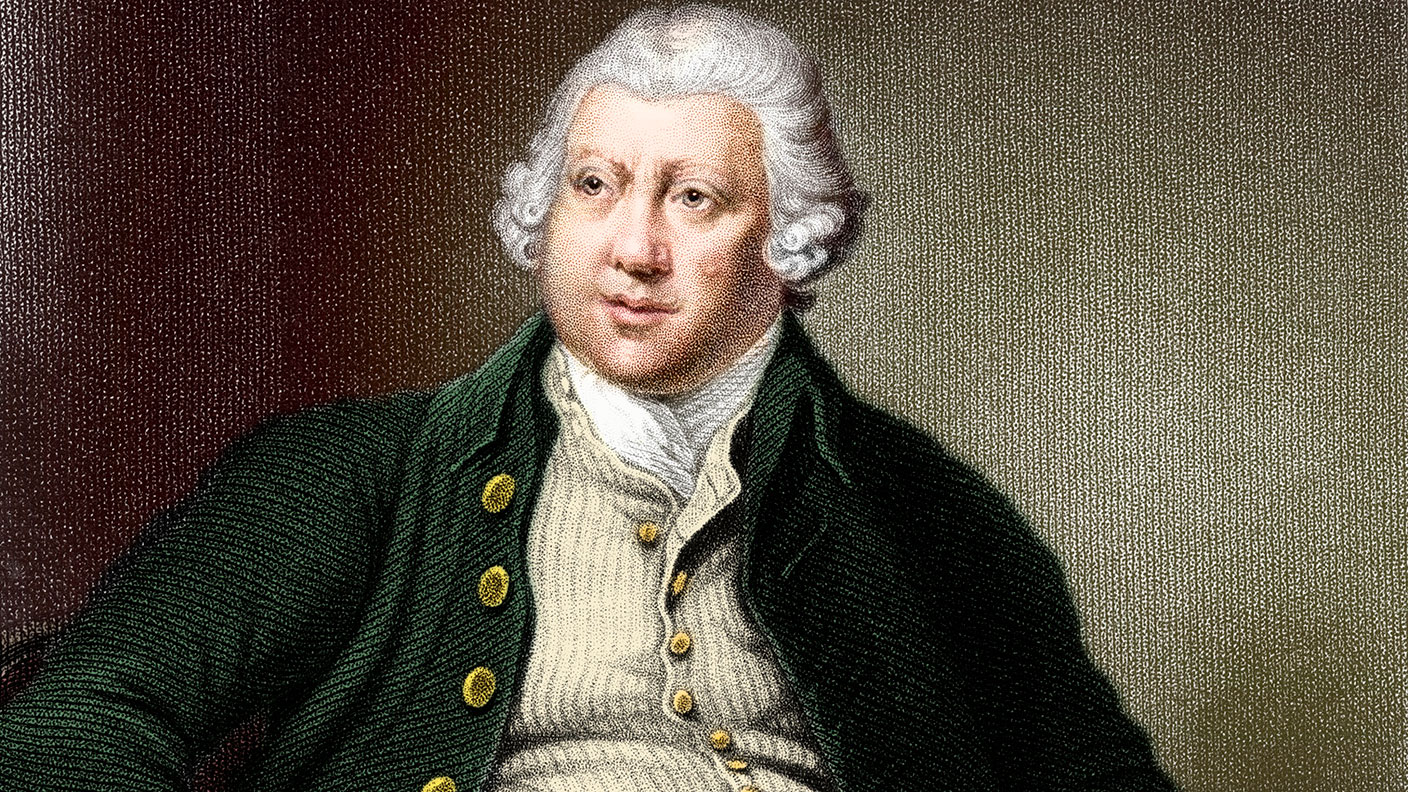
Get the latest financial news, insights and expert analysis from our award-winning MoneyWeek team, to help you understand what really matters when it comes to your finances.
You are now subscribed
Your newsletter sign-up was successful
Want to add more newsletters?

Twice daily
MoneyWeek
Get the latest financial news, insights and expert analysis from our award-winning MoneyWeek team, to help you understand what really matters when it comes to your finances.

Four times a week
Look After My Bills
Sign up to our free money-saving newsletter, filled with the latest news and expert advice to help you find the best tips and deals for managing your bills. Start saving today!
Richard Arkwright was born in 1732, the 13th child of a Preston tailor. He never went to school, but was taught by his cousin, became apprenticed to a barber, and set up shop in Bolton.
Then, thinking there would be more money in it, he started making wigs. He travelled around the country, doing deals and making contacts, and invented a waterproof wig dye that gave him enough money to get out of the wig game just as gentlemen's hairpieces went out of fashion.
At the time, an awful lot of people were trying to work out how to automate the manufacture of textiles. There were plenty of riches on offer to the man (or woman!) who could crack it. So Arkwright turned his attention to doing just that.
MoneyWeek
Subscribe to MoneyWeek today and get your first six magazine issues absolutely FREE

Sign up to Money Morning
Don't miss the latest investment and personal finances news, market analysis, plus money-saving tips with our free twice-daily newsletter
Don't miss the latest investment and personal finances news, market analysis, plus money-saving tips with our free twice-daily newsletter
He and a man called John Kay came up with a machine – the water frame – that could spin cotton in industrial amounts, cheaply and quickly, using unskilled labour. He built a water-powered mill in Cromford, a Derbyshire village, where he employed whole families, children included, housed in company accommodation. He expanded rapidly, and made extra money by licensing his patents to other manufacturers.
However, despite being credited with all sorts of inventions, he was dragged through the courts, accused of stealing the work of others.
Thomas Highs of Leigh (and others) sued him for infringing his patents. Highs claimed, among other things, that he had given John Kay his plans for a spinning machine for him to make a model, only for Kay to betray him and sell them to Arkwright.
Many of Arkwright's patents were overturned, but nevertheless, Highs died in obscurity and poverty in 1803, while Arkwright was knighted and entered the history books as the inventor of the modern factory system. He died on this day in 1792, leaving a fortune of £500,000.
Get the latest financial news, insights and expert analysis from our award-winning MoneyWeek team, to help you understand what really matters when it comes to your finances.

-
 Should you buy an active ETF?
Should you buy an active ETF?ETFs are often mischaracterised as passive products, but they can be a convenient way to add active management to your portfolio
-
 Power up your pension before 5 April – easy ways to save before the tax year end
Power up your pension before 5 April – easy ways to save before the tax year endWith the end of the tax year looming, pension savers currently have a window to review and maximise what’s going into their retirement funds – we look at how
-
 31 August 1957: the Federation of Malaya declares independence from the UK
31 August 1957: the Federation of Malaya declares independence from the UKFeatures On this day in 1957, after ten years of preparation, the Federation of Malaya became an independent nation.
-
 13 April 1960: the first satellite navigation system is launched
13 April 1960: the first satellite navigation system is launchedFeatures On this day in 1960, Nasa sent the Transit 1B satellite into orbit to provide positioning for the US Navy’s fleet of Polaris ballistic missile submarines.
-
 9 April 1838: National Gallery opens in Trafalgar Square
9 April 1838: National Gallery opens in Trafalgar SquareFeatures On this day in 1838, William Wilkins’ new National Gallery building in Trafalgar Square opened to the public.
-
3 March 1962: British Antarctic Territory is created
Features On this day in 1962, Britain formed the British Antarctic Territory administered from the Falkland Islands.
-
10 March 2000: the dotcom bubble peaks
Features Tech mania fanned by the dawning of the internet age inflated the dotcom bubble to maximum extent, on this day in 2000.
-
9 March 1776: Adam Smith publishes 'The Wealth of Nations'
Features On this day in 1776, Adam Smith, the “father of modern economics”, published his hugely influential book The Wealth of Nations.
-
 8 March 1817: the New York Stock Exchange is formed
8 March 1817: the New York Stock Exchange is formedFeatures On this day in 1817, a group of brokers moved out of a New York coffee house to form what would become the biggest stock exchange in the world.
-
7 March 1969: Queen Elizabeth II officially opens the Victoria Line
Features On this day in 1969, Queen Elizabeth II took only her second trip on the tube to officially open the underground’s newest line – the Victoria Line.
